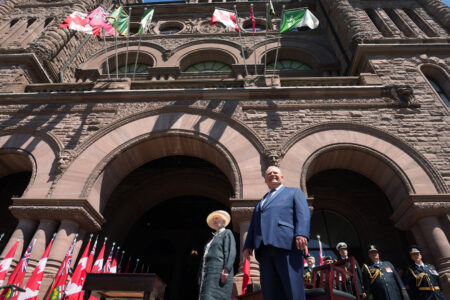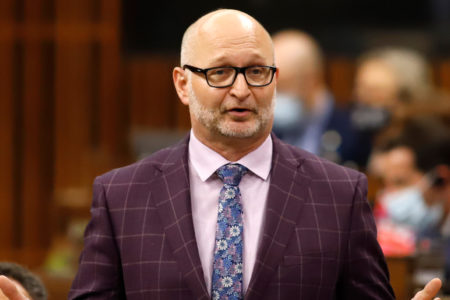
“Open government” is a concept that is growing in popularity in both practitioner and academic circles. One of President Obama’s first decisions was to direct his government to act in a more open and transparent way. Countries around the world have followed suit. The trend also seems to cross partisan lines. The Harper government launched an initiative in 2013 to promote “open data” and published the first “Action Plan on Open Government.” The Trudeau government has tried to go further, taking the leadership of the international Open Government Partnership.
And yet, as popular as the concept is, there is surprisingly little agreement about what actually constitutes “open government.” Currently, the government of Canada defines it as “a governing culture that fosters greater openness and accountability, enhances citizen participation in policy-making and service design, and creates a more efficient and responsive government.” While the statement is well written, there are a surprisingly large number of differing and competing concepts in it.
My colleague George Wootten and I watched early debates about open government and wondered whether people would choose definitions of open government that were better suited to their own institutional positions in the political process. The results have recently been published in the Canadian Journal of Political Science. We surveyed 352 journalists, parliamentarians and bloggers in Canada in 2014 and asked them to rank various definitions of open government. The headline finding is that, yes, respondents ranked competing definitions of open government very differently, in accordance with their narrow professional interests.
We presented survey respondents with definitions of open government that reflected concepts such as information, accountability and participation. In addition, we included one definition (Trade-offs) that is not commonly included in the discussion about open government but that we think should be. We also collected information on respondents’ demographic variables and political ideology so that we would be able to rule out other explanations for respondents’ preferred definitions of open government.
The definitions that we presented and their average ranks are in table 1. Overall, respondents preferred definitions that emphasized access to information and to politicians.
However, we also found very clear differences between the preferences of journalists, parliamentarians and bloggers. Journalists were more likely to prefer definitions of open government that emphasize sources (such as Information, Accessible and Officials). But government parliamentarians were more likely to prefer definitions that gave a role to public opinion in the policy process (such as Debate and Responsive). Specifically, the median rank that journalists assigned to Information was 1, but the median rank for the same definition for government parliamentarians was 3. By contrast, the median rank for government parliamentarians for Debate and Responsive was 3, but for journalists it was 4. Opposition parliamentarians occupied a middle ground between the two positions, preferring Information (median rank 2) only very slightly to Accessible, Debate and Responsive (median ranks of 3 for each). Bloggers were even more eclectic, assigning a median rank of 2 to Information, but also high ranks to Responsive and Debate (median ranks of 3 for both).
What do these results mean?
We suggest that a large part of this variation arises because actors in the policy process choose definitions of open government that suit their interests. We think this is one reason for the common phenomenon of opposition parties routinely promising to be more open and accountable and then closing up when they win elections and form government.
For this reason, we are quite skeptical about whether open government has any chance of serving as a mobilizing concept and a focus of reform. Instead, we are more convinced it will linger as a useful symbol for opposition parties looking for cheap and popular promises.
Why did we do this?
The impetus for this project was the heated debate in Ontario about the McGuinty government’s cancellation of two natural gas plants before the 2011 provincial election. The decision to cancel the plants incurred significant costs to the province, but ultimately rescued his Liberal government.
But during the resulting minority legislature, opposition politicians and journalists were clamouring for information about “who knew what when,” trying to discover a smoking gun. To us, watching the bloodbath, the answers to these questions were fairly obvious. Dalton McGuinty was the who, and the why was to save his party’s seats in Mississauga and Oakville, where there was opposition to building the plants. It wasn’t exactly rocket science.
But both the opposition and journalists insisted on combing through thousands of pages of internal documents looking for a mythical smoking gun memo that would bring down whoever made this horrible decision.
It is worth pointing out that, in a lot of ways, clear accountability was exacted in this case. McGuinty had to give up his premiership to save his party and one person was convicted of criminal charges.
When Kathleen Wynne replaced McGuinty as premier, a large part of her campaign was built around ideas of — you guessed it — “open government.” As far as we can tell, the idea was a politically sound one; it addressed the feeling in the electorate that the previous government was excessively secretive in its dealings by promising to be more “open.”
All of this is well and good and tough to argue with, but we also felt at the time that what was really missing from the debate about the cancellation of the natural gas plants was an honest and — ahem — “open” conversation about the trade-offs associated with the various ways of generating electricity in the province, keeping costs low and addressing climate change and air pollution.
We have shown how people emphasize different definitions associated with open government depending on their interests. Journalists have powerful institutional imperatives to get information and sources. Government parliamentarians have a powerful set of imperatives to emphasize the ways in which their decisions have been taken with public input. As such, our work calls for people to temper their optimism somewhat about the possibilities of truly “open” government. It is hard to generate reforms when there is no consensus on the definitions of key concepts. Moreover, governing in a democracy requires forging stable majority coalitions, which often necessitates messy compromises. It is difficult to see how this process could function if everything were thrown open to the public. Opposition parties seem to learn this quickly when forming government.
That said, clearly, Canada is never going back to the days when speeches in Parliament were not even recorded. Nor should it return to such a narrow understanding of what citizens need to know. We hope that our work will expand even further the definitions of open government, to include a discussion of the trade-offs associated with any given policy. In this way, our work is aimed at journalists who define open government in terms of access to information, facts and sources. While this view is at one level understandable because it makes their jobs easier (and is in a lot of ways completely laudable), we feel that if journalists thought about open government in ways that emphasize trade-offs, they might play a more productive role in producing an informed public and better policy.
Photo: Shutterstock, by Rawpixel.com.
Do you have something to say about the article you just read? Be part of the Policy Options discussion, and send in your own submission. Here is a link on how to do it. | Souhaitez-vous réagir à cet article ? Joignez-vous aux débats d’Options politiques et soumettez-nous votre texte en suivant ces directives.







